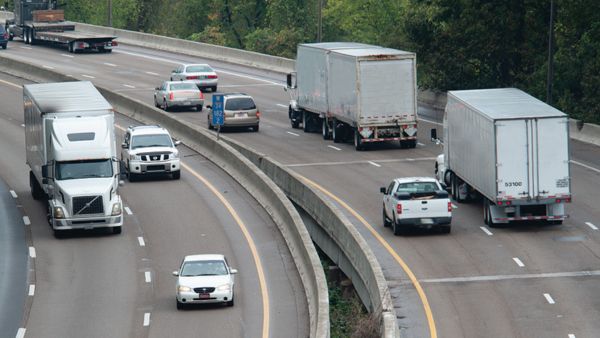Should We Have Interstate Authority?
Rick Malchow, Industry Business Advisor
April 14, 2021

Carriers that conduct trade, traffic, or transportation exclusively in their business's home state are considered intrastate carriers. Intrastate carriers are prohibited from engaging in interstate transportation within the borders of their own state. The company also cannot operate commercial motor vehicles outside of their state. These prohibitions limit the company's operational flexibility.
Being registered with the Federal Motor Carrier Safety Administration (FMCSA) opens a carrier's options so movements that are commonly referred to "first mile" pick-ups and "last mile" deliveries can be made. These movements involve shipments that are starting their journey in the carrier's home state or are bound our of the state. Having an interstate USDOT number also allows the company to conduct transportation or do work outside of their state of domicile. While having an interstate USDOT number opens business possibilities, doing so requires considering consequences that may have been unexpected.
New Entrant Audit
The FMCSA needs to know whether a carrier is operating safely and compliantly. During the company's first eighteen months operating as an interstate carrier, they are considered "new entrants." The operation is monitored under the FMCSA's New Entrant Program ensuring the company has effective safety management controls in place. In addition to being watched closely through roadside inspections, the carrier will undergo a safety audit. This audit must be passed, or the carrier may lose its USDOT number and must cease interstate operations.
Unified Carrier Registration
All interstate carriers must participate in the Unified Carrier Registration (UCR) program. The revenues received are used for motor carrier safety programs, enforcement, and the administration of the program's plan and agreement. How much a carrier is required to pay in UCR fees is based on the number of vehicles operated in interstate commerce.
Federal Motor Carrier Safety Regulations
When engaged in interstate operations, carriers must follow the Federal Motor Carrier Safety Regulations (FMCSRs). The regulations may be more restrictive and inclusive than a state's rules for their intrastate carriers. The rules include, but are not limited to, the areas of vehicle markings, inspections, the driver of commercial vehicles, driver qualifications, and hours of service. Operations that have a mixed fleet where some drivers operate strictly intrastate while others operate in interstate commerce may have hybrid compliance program where the interstate drivers follow the federal rules and the intrastate drivers follow the state's rules.
Biennial Updates
All interstate carriers need to provide a biennial (every other year) registrations update to the FMCSA. This ensures that the agency has a current "snapshot" of a carrier's operation for compliance comparisons and census reporting. Not providing a biennial update may result in the deactivation of the carrier's interstate USDOT number. The rules require an active USDOT number to participate in any interstate movements.
For-hire Authority
The most common types of authority are property for-hire, passenger for-hire, household goods, broker, and freight forwarder. If an entity never operates CMVs it is possible to have authority, but not have a USDOT number. Straight brokers are an example of this. In order to move property or people that belong to somebody else for compensation, for-hire authority is needed. Having authority is often referred to as having an MC Number. If a carrier is involved in interstate and intrastate movements, the operation may need both intrastate authority issued by the state where the movement occurs and interstate authority issued by the FMCSA.
Whether a company operates only in their home state or multiple states, compliance with rules and registrations can be complex. Often multiple state and federal regulations and enforcement agencies are involved — each expecting their unique rules, forms, and registrations to be complete, accurate, and up to date.
Let J. J. Keller determine your authority needs or call 888.601.2017 for more information.